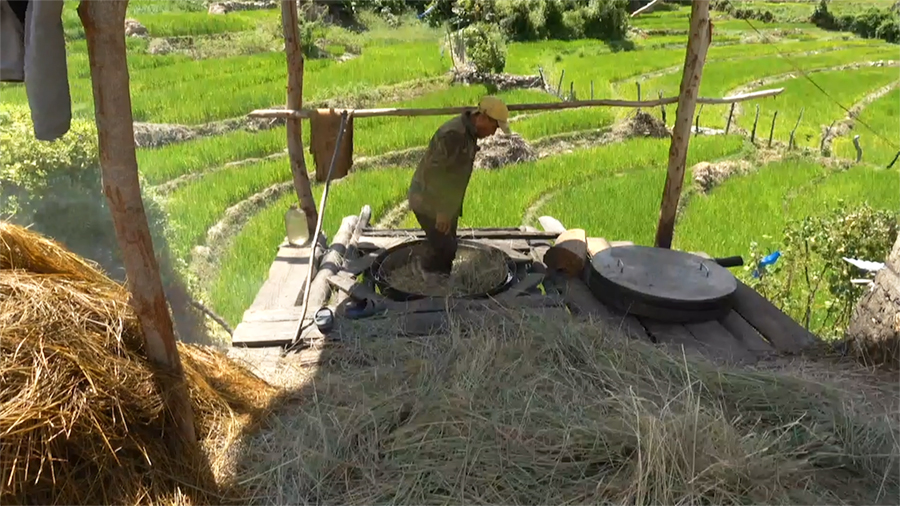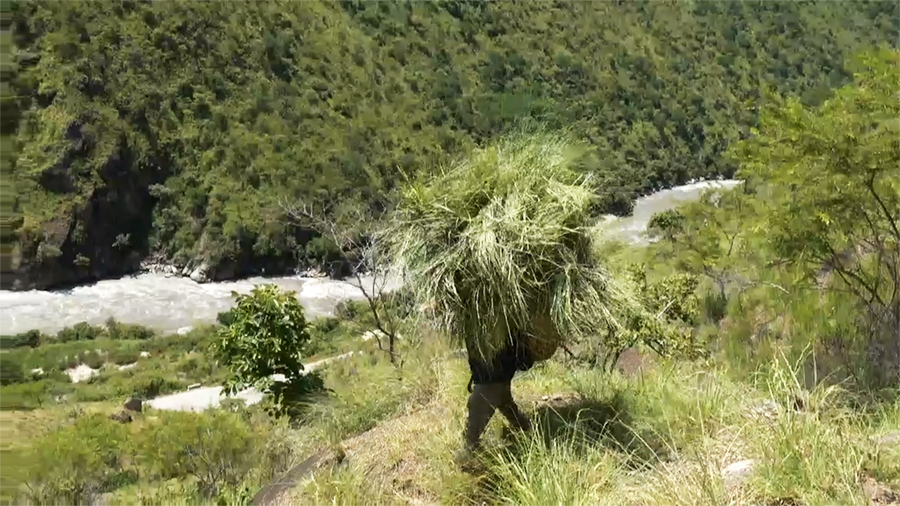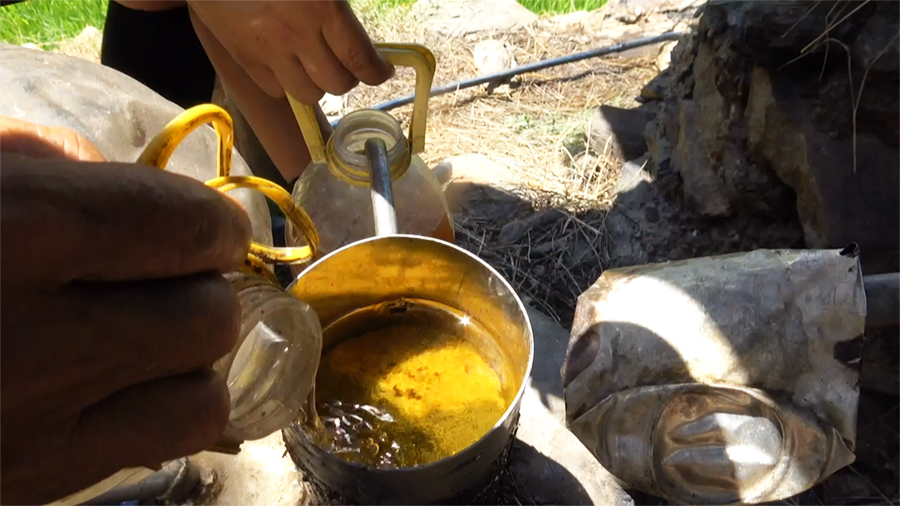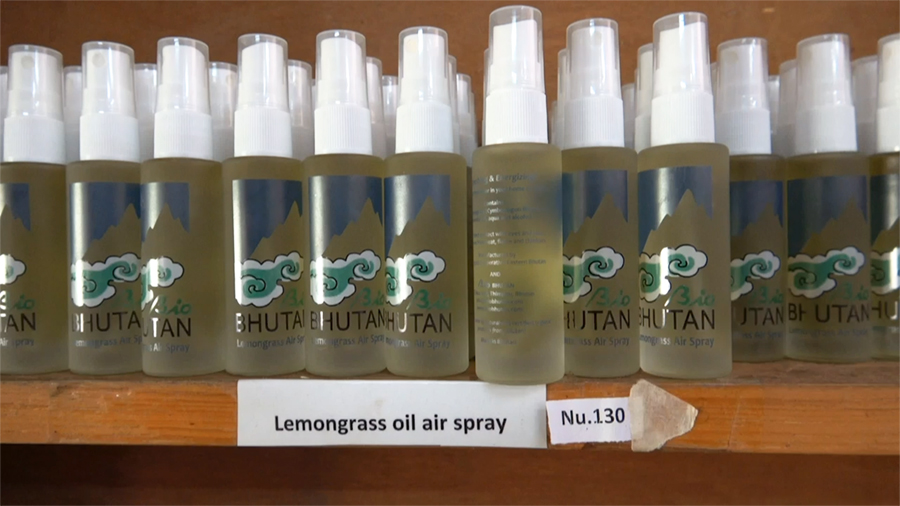
Despite the rising price of lemongrass oil, farmers in Monggar and Trashigang are taking less interest in extracting the oil. They find the process labour-intensive and harvest has been on decline. As a result, farmers have turned to construction sites for better earnings. Only a few continue to distil lemon grass oil.
 June to September months are considered the best season to distil lemon grass oil.
June to September months are considered the best season to distil lemon grass oil.
For that, people cut lemon grass after paying a certain amount to the community forest member groups.
A group of farmers from Chakshar Gewog in Monggar come to harvest lemongrass in Narang Gewog. The farmers pay Nu 5,000 to the Narang community forest group.
 They then transport the lemongrass to the distillation process centre at Sherichhu in Chakshar Gewog.
They then transport the lemongrass to the distillation process centre at Sherichhu in Chakshar Gewog.
At the centre, the lemon grass is placed in a container with hot water underneath and heated for almost three hours.
In this process, the steam is passed through the plant material, causing the essential oil to vaporize. The vapour is then condensed and collected as pure lemongrass oil.
But except for some 40 farmers of Monggar and Trashigang, others have discontinued the work.
Some years ago, the farmers of Lhuentse and Trashi Yangtse used to extract the oil but not anymore.
Rinzin, a farmer said “The lemon grass production is not so good. Forestry officials are monitoring and the forest fire does not happen annually. So, the production is not good. Another reason is people are hesitating to work as it is considered sinful. Most people opt for construction work, except for those who have paddy land.”
“In the pre-pandemic time, people used to extract oil. After the COVID pandemic, I did not see many interested people. Although the price of the oil has increased, there is less production and not many works extract it. More people prefer daily wage works at construction sites as the income is good,” said Cheten, another farmer.
 The farmers then sell the oil to the Bio-Bhutan office based in Sherichu. Bio Bhutan is a business entity that specialises in the sustainable production of natural and organic certified products from raw materials supplied by farmers.
The farmers then sell the oil to the Bio-Bhutan office based in Sherichu. Bio Bhutan is a business entity that specialises in the sustainable production of natural and organic certified products from raw materials supplied by farmers.
This year, farmers earned Nu 1,800 for a litre with the best quality. They earned Nu 1,600 last year.
The price of other types of lemongrass oil has increased from over Nu 600 to 800 recently.
Rinzin, a farmer said “Last year, the production was not so good. I could produce only around 60 litres of oil. So far, I have supplied around 45 litres and I can still extract around 45 litres. So, within this season, I hope to produce around 90 litres. After deducting the wage rate for my labours, I think I will have around Nu 1,000 daily.”
Cheten said “Last year, I collected lemon grass from our community forest area, which was not damaged by fire. I sold 50 litres. This year also I don’t think I will get more than around 50 litres because the lemon grass root was burned with heat.”
To encourage people to extract the oil, Bio-Bhutan has supported farmers by providing water pipes and zinc sheets among others.
Bio-Bhutan produces perfume and soap from lemongrass oil and exports it to other countries.
The lemongrass oil distillation process was started in the 1980s by a private firm in the east.
Sonam Darjay, Trashigang
Edited by Tshering Zam








